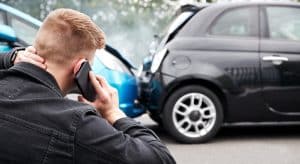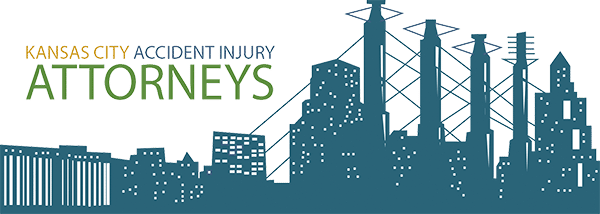When to Worry About Pain After a Car Accident in Kansas City
 You may walk from a car crash thinking you’re okay. You exchange insurance information, shake it off, maybe even drive yourself home. But then two days later, you can’t turn your neck, your back spasms when you sit down, or your ribs ache every time you laugh.
You may walk from a car crash thinking you’re okay. You exchange insurance information, shake it off, maybe even drive yourself home. But then two days later, you can’t turn your neck, your back spasms when you sit down, or your ribs ache every time you laugh.
Sound familiar?
Pain after a car accident can be sneaky. It doesn’t always hit like a thunderbolt on impact. Sometimes, it creeps in hours, days, or even weeks later. And by then, you’re left wondering if this is normal or if it’s something serious.
Is it normal to feel pain after a car accident?
Yes, some pain is normal. Your body just experienced trauma, even if it was a minor accident. The force of even a low-speed collision can jolt muscles, strain tendons, and create enough adrenaline to mask symptoms initially.
But there’s a difference between expected soreness and a sign that something deeper is going on. That’s where paying close attention to how your body feels and how long that pain lasts becomes critical.
How long after a car accident do you feel pain?
Pain can appear immediately, gradually, or suddenly days after an accident. The delay is due in part to your body’s stress response. When adrenaline and cortisol spike, they can block pain signals temporarily.
For many people, this means:
- Whiplash symptoms appear within 24 to 72 hours
- Back and muscle soreness may take a few days to set in
- Nerve-related issues like tingling or radiating pain may take a week or more to develop completely
That’s why doctors recommend getting evaluated even if you feel fine at first. According to the Missouri State Highway Patrol, there were over 48,000 reported injuries from crashes statewide in 2022. Many of those may involve delayed onset of symptoms.
Understanding muscle pain, soreness, and delayed symptoms
The first thing to understand is that soreness doesn’t always mean injury, but it should never be dismissed outright. Many people chalk up nagging aches to stress or aging, not realizing those issues could be directly tied to trauma sustained in the crash. If you’ve started limping, holding tension in one shoulder, or avoiding specific movements to reduce pain, those coping behaviors may worsen your condition over time.
So, what does normal soreness feel like after a crash?
Think of it like post-workout pain: stiff, tender muscles that get a little better daily. If the discomfort is symmetrical (both shoulders, both thighs, etc.), improves with stretching or rest, and doesn’t interfere with sleep, it’s like muscle inflammation.
However, delayed pain that gets worse, spreads, or limits mobility can indicate something more serious, such as:
- Torn ligaments
- Slipped discs or spinal cord injuries
- Concussions or traumatic brain injuries
- Internal bruises or organ damage
That dull ache you’ve been ignoring may be your body trying to whisper before it screams.
Signs your pain could point to a serious injury
How do you know when to stop waiting it out and start worrying? Here are red flags that your pain could signal a more significant issue:
- Pain that worsens over time instead of fading
- Pain accompanied by dizziness, nausea, or vision changes
- Shooting pain that radiates down your limbs
- Stiffness in the neck or back that doesn’t improve with rest
- Tingling or numbness in fingers, hands, feet, or legs
- Bruising or swelling in the abdomen, ribs, or lower back
If you’re experiencing any of these, seek medical attention immediately. Left untreated, injuries like spinal trauma or internal bleeding can lead to long-term health complications or worse.
When to see a doctor if you’re still sore after a car accident
If you’re still sore 48 hours or more after a car collision, or if your pain worsens, see a doctor. Even better, get checked out before symptoms start. In Kansas City, many urgent care clinics and chiropractors are familiar with post-accident evaluations and know how to document your injuries properly.
Documentation matters. If you’re filing an insurance claim or considering legal action, your medical records are key to proving that your pain after a car accident is legitimate and connected to the crash.
Around 2.1 million Americans went to the emergency room because of car crashes in 2020 alone. Many others don’t seek immediate care only to regret that decision later.
How long does it take to recover from a car accident in Kansas City?
Recovery time depends on the injury and the person. Some Kansas City locals bounce back in a week, while others take months. The most common timeline ranges include:
- Whiplash and soft tissue injuries: Two to 12 weeks
- Concussions: One to three months, depending on severity
- Fractures and sprains: Six to ten weeks
- Chronic pain or PTSD symptoms: Ongoing and variable
What to do if you’re still hurt after a car wreck
Are you still hurting a week, or even a month, after your crash? You’re not alone, and you’re not stuck. Here’s what to do next:
- Follow up with your doctor for a second evaluation. Mention all symptoms, even if they seem minor.
- Keep a daily pain journal. Track symptoms, triggers, and progress. It helps both medically and legally.
- Avoid self-diagnosing. Leave your spine to professionals—not internet guesswork.
- Talk to a personal injury attorney. If your pain interferes with work, daily life, or mobility, you should seek legal advice.
- Don’t let car insurance companies rush you. They may offer quick settlements before your complete symptoms develop.
Persistent pain isn’t just an inconvenience; it’s a signal. And after a crash, it deserves serious attention. If you’re still sore, stiff, or unsure if something’s wrong, get the care and legal help you need to protect your health and future.
If you’re suffering pain after a car accident in Kansas City, contact Kansas City Accident Injury Attorneys to understand your rights better and fight for compensation.

Kansas City personal injury attorney James Roswold of Kansas City Accident Injury Attorneys handles cases dealing with victims of personal injury, medical negligence, wrongful death, workers compensation, nursing home negligence, premises liability, product liability, car accident, truck accident and motorcycle accident cases.

